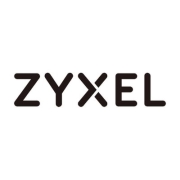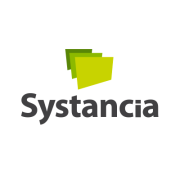SSL VPN provides secure remote access to corporate applications, enabling employees to connect safely to internal network resources from any location.
SSL VPN technology establishes an encrypted connection between a user's device and the corporate network, offering security and privacy for data transfers. Users highlight the ease of deployment and management compared to traditional VPN setups. This solution adapts seamlessly to various business environments, supporting multiple devices and operating systems, ensuring compatibility and flexibility in implementation.
What are the critical features of SSL VPN?In industries like finance, healthcare, and logistics, SSL VPNs are implemented to maintain compliance with security standards. These sectors benefit from secure remote access due to the high sensitivity of their data, allowing employees to work on client projects without compromising data integrity.
Secure remote access is essential for organizations, allowing employees to access critical business systems from any location, thereby supporting a more flexible and efficient work environment while maintaining security protocols.
| Product | Market Share (%) |
|---|---|
| Ivanti Connect Secure | 16.9% |
| Cisco Secure Client (including AnyConnect) | 13.3% |
| Citrix Gateway | 11.2% |
| Other | 58.6% |
























With many employees now working from home, SSL VPNs are becoming more important than ever before. As companies provide corporate network access, the rate of fraud incidents exponentially increases when home internet connections are used. Potentially weak or unsecured connections are targeted by cybercriminals, making companies more susceptible to threats and malicious attacks. Because organizations have to provide secure and safe internet access, the VPN solution they choose should be scalable and easy to use. SSL VPNs are crucial since they ensure the safety necessary for heightened security, they can be accessed from any device, they are location-agnostic, and they require little to no enterprise computing experience for employees. More importantly, they offer peace of mind for employers, so that they can feel comfortable allowing their staff to continue working remotely from home.
SSL VPNs are safe and secure so long as your browser is protected. An SSL VPN becomes compromised as soon as the browser being used is compromised. However, SSL VPNs are still considered safe because communication happens via an encrypted connection, regardless of what type of device is being used, and no matter if network access is through the public internet or another secure network. Having an SSL VPN also limits access to applications, giving organizations the ability to manage users’ privileges more precisely, which subsequently provides businesses with more control over security.
VPNs preceded SSL VPNs, but SSL VPNs are just as secure and safe as IPsec (Internet Protocol Security) VPNs. SSL VPNs are primarily used for web applications, unlike VPNs which are used for both web and non-web apps. The endpoints for each protocol also differ between VPNs and SSL VPNs; An SSL VPN provides users with access to a specific application or a particular system on the network while a VPN provides full access to an entire network along with all of its applications.
Cyberattackers can gain complete access to a corporate network through a VPN. However, with SSL VPNs, only specific operating systems or applications that the SSL is associated with are compromised if and when a cybercriminal attempts to access exposed networks.
Another major difference between VPNs and SSL VPNs is that an SSL framework makes assigning administrative rights to users (depending on their needs for access or their seniority) easy.
SSL Portal VPN is a type of SSL VPN that allows one SSL VPN connection at a time to remote websites. After remote users have been authenticated, they can access the SSL VPN gateway via their web browser. This SSN VPN is referred to as a “portal” because only a single web page is necessary in order to access other resources. Generally, users can access this gateway using any web browser and the username and password that are typically provided to them by the VPN gateway service.
SSL Tunnel VPN: In contrast to an SSL portal VPN, this type of VPN provides access to multiple network services via a web browser through a tunnel. “Tunneling” allows browsers to interact with and actively display content (JavaScript to Flash-based technology), which increases the versatility over an SSL portal VPN.
SSL VPN operates by using encryption technology to create a secure and private connection over the Internet. It uses the Secure Sockets Layer protocol to encrypt the transmitted data, ensuring that any information sent between your device and the network remains confidential and protected from unauthorized access. This kind of VPN is especially useful for remote workers, providing them secure access to the company's internal network resources without being physically present in the office.
What are the security benefits of SSL VPN compared to traditional VPNs?SSL VPN offers several security advantages over traditional VPNs. It uses robust encryption to protect data, reducing the risk of interception and data breaches. Unlike traditional VPNs that require separate client software, SSL VPN can be accessed via a standard web browser, which simplifies management and reduces potential vulnerabilities in client software. This makes it easier to deploy patches and updates, ensuring that security measures are up-to-date.
Why should you choose SSL VPN over IPsec VPN?Choosing SSL VPN over IPsec VPN can be beneficial due to its ease of use and flexibility. SSL VPN doesn't require pre-installed client software, making it more straightforward for remote access via web browsers. It is firewall-friendly, meaning it can pass through most firewalls and network address translations without the need for special configurations. This compatibility results in a more seamless user experience, especially for non-technical users and remote workers who need secure access without complex setup requirements.
Can SSL VPN handle high-traffic environments?SSL VPN can efficiently manage high-traffic environments by leveraging load balancing and optimizing gateway performance. Organizations can deploy multiple SSL VPN gateways and use load balancers to distribute the traffic evenly across the network. This setup can scale resources up or down depending on the demand, ensuring consistent performance even during traffic spikes. Therefore, an SSL VPN is a reliable solution for businesses experiencing varied levels of user access and network load.
Are there any limitations to SSL VPN that you should consider?While SSL VPN offers numerous advantages, there are some limitations to consider. It may not provide the same level of performance as IPsec VPNs for specific applications requiring high data throughput. SSL VPN also relies heavily on web browsers, which may introduce compatibility issues depending on browser updates or plugins. It is essential to regularly monitor and manage these factors to ensure uninterrupted and secure access. Evaluating the specific needs and network conditions is crucial for determining if SSL VPN suits your organization's requirements.